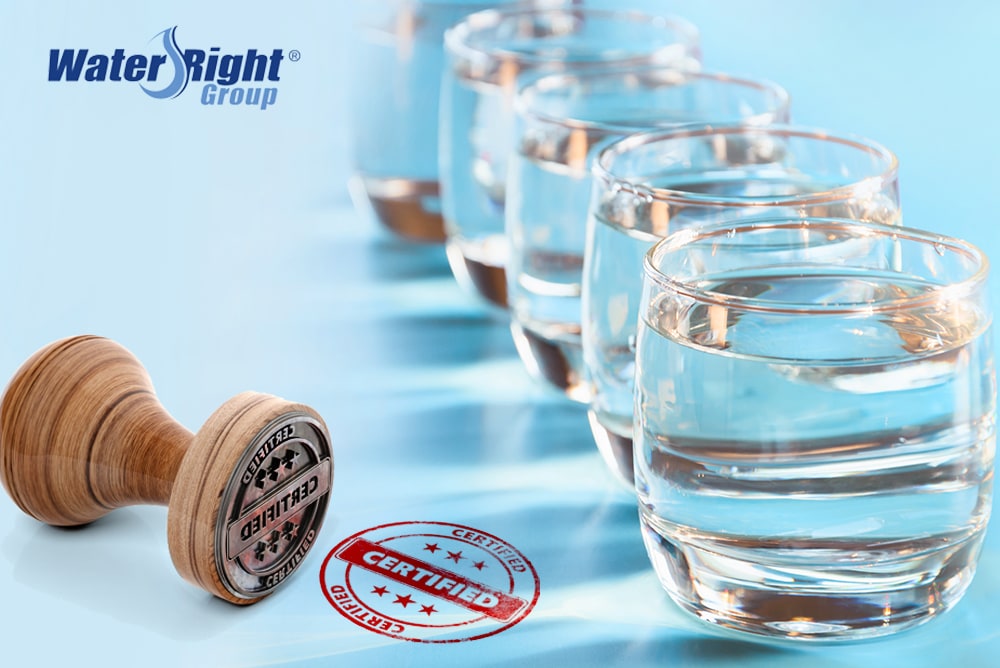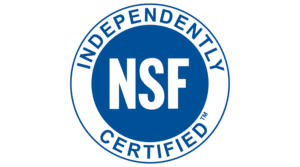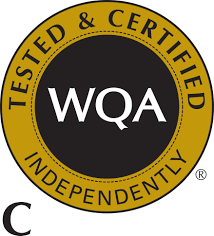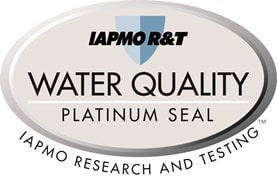
Why Should I Buy A Certified Water Filter
There are plenty of places to shop for residential water treatment. You can contact a local expert, head to a home improvement store, or even order something online.
How do you know what you’re purchasing is safe and effective? Many contaminants that may be traveling with your water can’t be seen, smelled, or tasted. So, how can you be certain the water filtration solutions in your home do what they claim to do? That’s where third-party certifications play an important role.
These independent organizations perform rigorous testing on water filtration products to ensure that the water coming out the other side is free from the contaminants it is meant to remove. Manufacturers that have earned certain certifications are going the extra mile to prove that their products are ones you can trust.
Health and Safety Concerns
When it comes to water treatment, there is a wide range of issues you might be faced with. Your water may be carrying certain minerals, like calcium or iron, that can ruin the way your home looks with lime scale build up and rust stains, but these are concerns that only make life inconvenient. They do not have any harmful health effects to our bodies if we eat or drink them. These are examples of what the EPA calls Secondary Contaminants. Because they are safe to consume, the EPA does not set rules and regulations in place to limit how much should be in your water.
The other category of elements that may be traveling in your water is called Primary Contaminates. Primary Contaminates are all of the items that science has proven is harmful for us to drink on a regular basis. The EPA has created laws around these contaminants to provide standards for our safety. Unfortunately, in the world today there are more and more instances where these water-related health issues are coming to light. Contaminants like lead, PFOS chemicals, arsenic, and nitrates are linked to damaging health effects and are undetectable to human senses. If you have concerns about removing any Primary Contaminates from your water, this is where you need a water filtration system you can trust.
But what certifications should you look for while shopping? There are three main independent organizations that are dedicated to testing and certifying water treatment product claims: the National Science Foundation (NSF), the Water Quality Association (WQA), and the International Association of Plumbing and Manufacturing Officials (IAPMO).
Here’s a closer look at third-party water filtration certifications available from these groups and what they mean:
 NSF/ANSI Standards
NSF/ANSI Standards
The National Sanitation Foundation International (NSF) is an independent certification organization that’s been around since the 1940s. This group of professionals and public health experts work to make sure a wide range of manufacturers’ products do what they claim.
For water filtration certification, the NSF uses standards established by the American National Standard Institute (ANSI). There are several different standards for water filtration systems.
NSF/ANSI 42: Aesthetic Effects
This standard evaluates the minimum requirements for water treatment systems designed to improve non-health related aspects of water quality. So, it’s looking at how well a product filters out things that impact the taste, odor, and appearance of your water. That may include removal of chlorine in city water, total dissolved solids (TDS), iron, and many minerals that cause water quality issues but are not a health concern.
NSF/ANSI 44: Water Softeners
This standard is specifically used to evaluate water softening systems. It establishes minimum requirements for a variety of factors including reduction of hardness and softening capacity as well as material safety and structural integrity.
NSF/ANSI 44 also measures drops in water pressure and the accuracy of the brine system. Plus, manufacturers can elect to have claims regarding the efficiency of salt and water consumption measured against established standards, too.
NSF/ANSI 53: Health Effects
This standard includes requirements for water filtration products that claim to reduce more than 50 contaminants that have specific health-related concerns. Those problematic water contaminants include lead and other heavy metals, volatile organic compounds (VOCs), chromium, and Cryptosporidium bacteria.
If you want a filter that gives you peace of mind about potentially harmful contaminants, this is an important certification to look for.
NSF/ANSI 58: Reverse Osmosis
Reverse osmosis (R.O.) systems are a popular way to improve drinking water quality in the home, and this standard is used specifically to certify the effectiveness of R.O. products.
The R.O. process includes a special membrane along with carbon filtration. NSF/ANSI 58 checks to make sure the system is removing and reducing everything it claims. Beyond contaminants, it also sets standards for efficiency, safety and integrity of materials, and the system’s recovery rating. The recovery rating is the percentage of filtered water made available for drinking versus the amount of wastewater used to flush the system.
NSF/ANSI 401: Emerging Compounds/Incidental Contaminants
In water filtration, so-called emerging contaminants include 15 specific pollutants that could cause health problems, although there may not be enough evidence to confirm those concerns. Still, many people have concerns. The NSF says 82 percent of consumers are worried about negative effects from trace amounts of such chemicals in drinking water.
The most well-known of these emerging contaminants include prescription and over the counter medications as well as herbicides and pesticides. Some R.O. systems and other water filtration devices make claims about reducing these contaminants. NSF/ANSI 401 sets the requirements and verifies the compounds are being effectively reduced.
 WQA Product Certification
WQA Product Certification
The Water Quality Association (WQA) has its own program for testing and certifying products to industry standards. The WQA’s Gold Seal Product Certification Program helps ensure claims that manufacturers make on packaging are backed by data from performance testing. The WQA also conducts annual audits of facilities that manufacture the products.
WQA certification can include a wide list of standards, including the NSF/ANSI standards mentioned above. It’s also established some of its own standards:
- WQA S-100: Household, Commercial, and Portable Exchange Cation Exchange Water Softeners, 2000
- WQA S-200: Residential and Commercial Water Filters, 2012
- WQA S-300: Point-of-Use Reverse Osmosis Drinking Water Systems, 2000
- WQA S-400: Point-of-Use Distillation Drinking Water Systems, 2000
There are also WQA standards that evaluate and certify sustainability claims of water treatment systems and media.
 IAPMO Certification
IAPMO Certification
The International Association of Plumbing and Mechanical Officials (IAPMO) sets standards for many plumbing products. IAPMO is also recognized by ANSI as a Standards Development Organization (SDO).
IAPMO R&T is a special lab that provides product testing for a wide variety of water filtration and treatment equipment. It uses many different existing standards including NSF/ANSI, WQA, and its own established standards.
For example, IAPMO drinking water product certification includes NSF/ANSI 44, 53, and 58. It also evaluates products based on WQA standards S-100, S-200, S-300, and S-400. IAPMO certifications must get renewed every three years.
Why You Can Trust Water-Right Products and Brands
At Water-Right, we are passionate about the science and art of making water right for people. After more than half-a-century, our company continues bringing innovative water treatment products to the market. We also want to earn the trust of the people who purchase products from our family of brands.
In addition to rigorous in-house testing of our products, we regularly pursue many of these third-party certifications. We have certified solutions for the removal of many Primary Contaminants, like lead, PFOS chemicals, arsenic, and nitrates, for both your sink or your entire home so you can have worry-free water. Look for seals from NSF, WQA, and IAPMO on product literature.
If you have questions about a specific piece of equipment and its certifications, you can reach a trusted water expert in your area using the contact form below.

